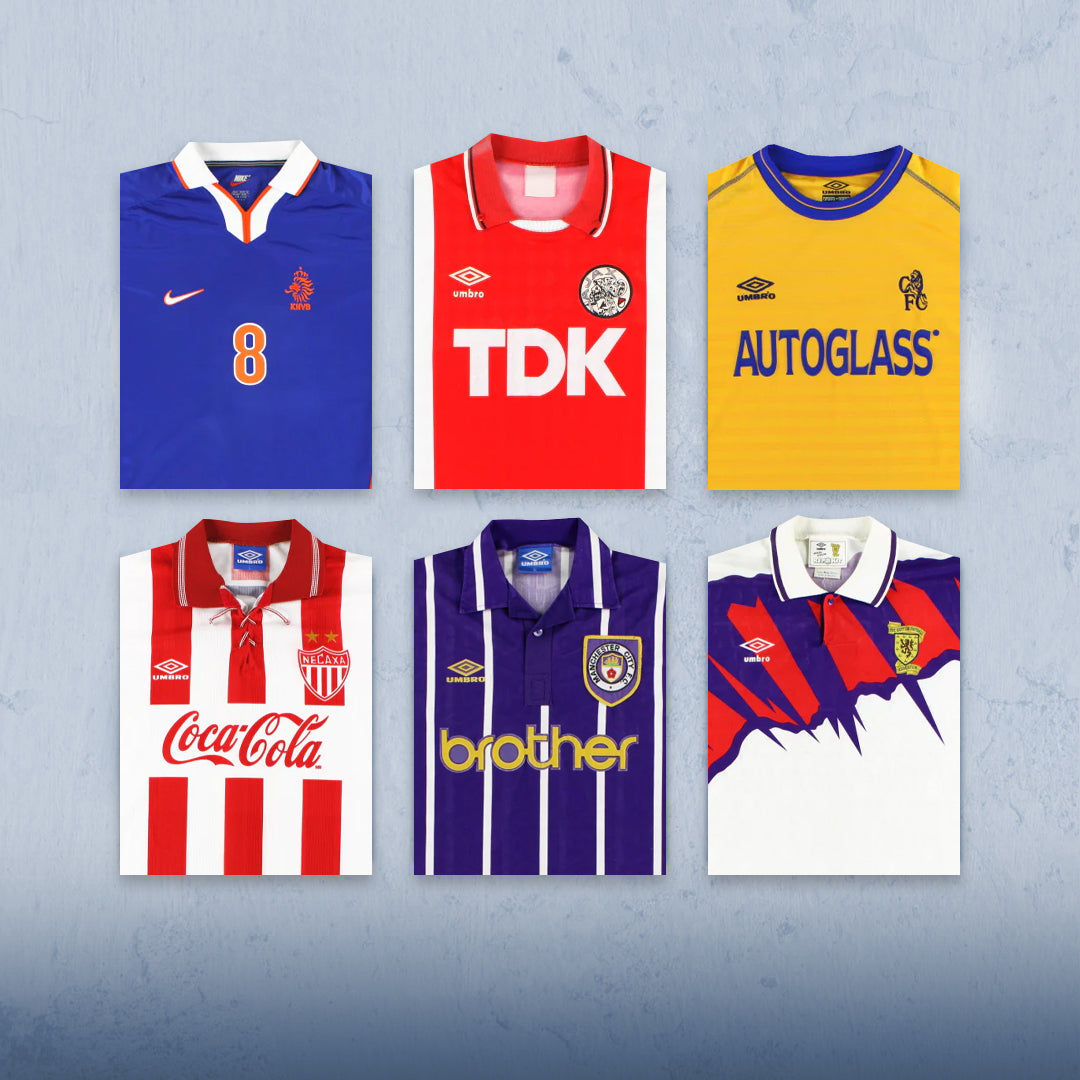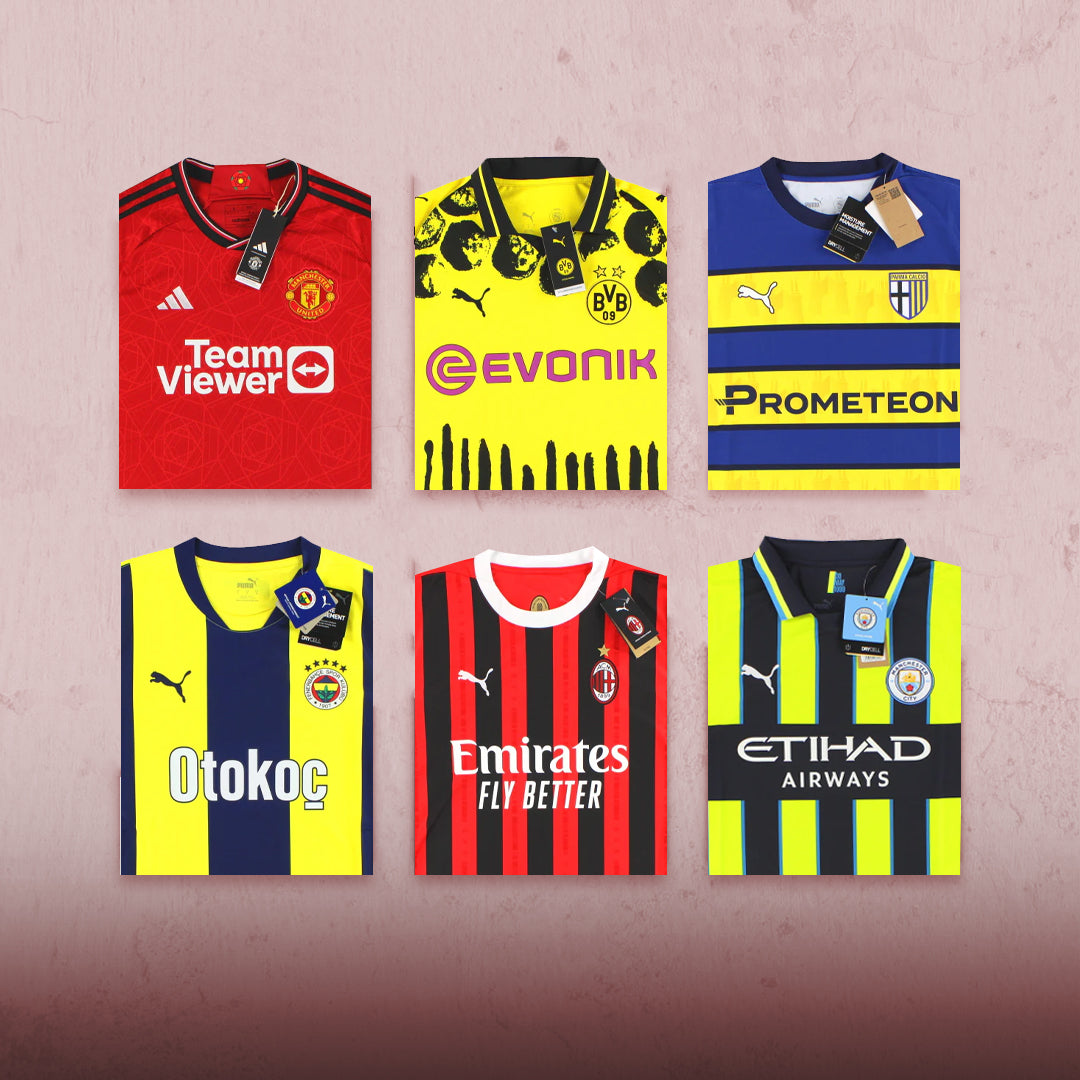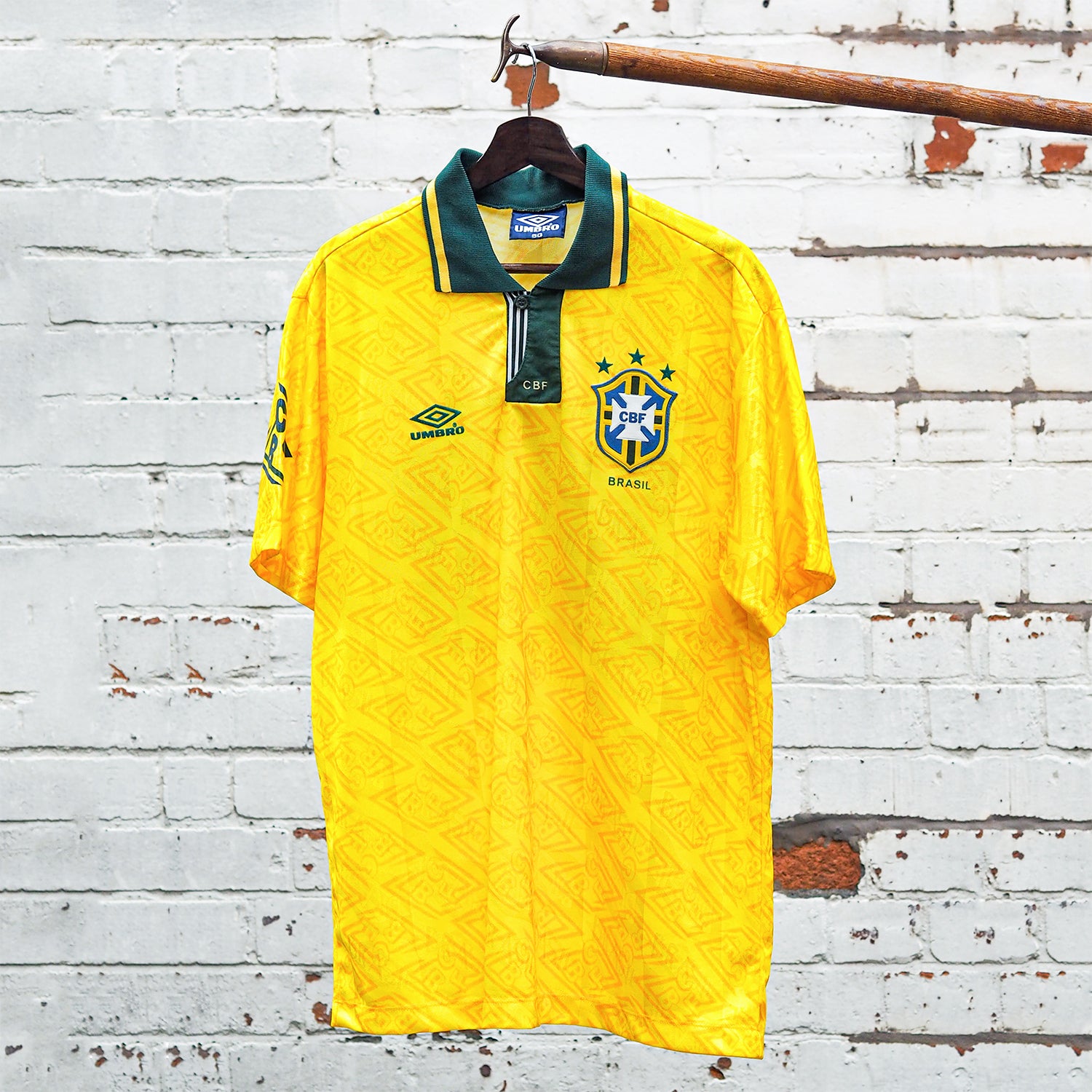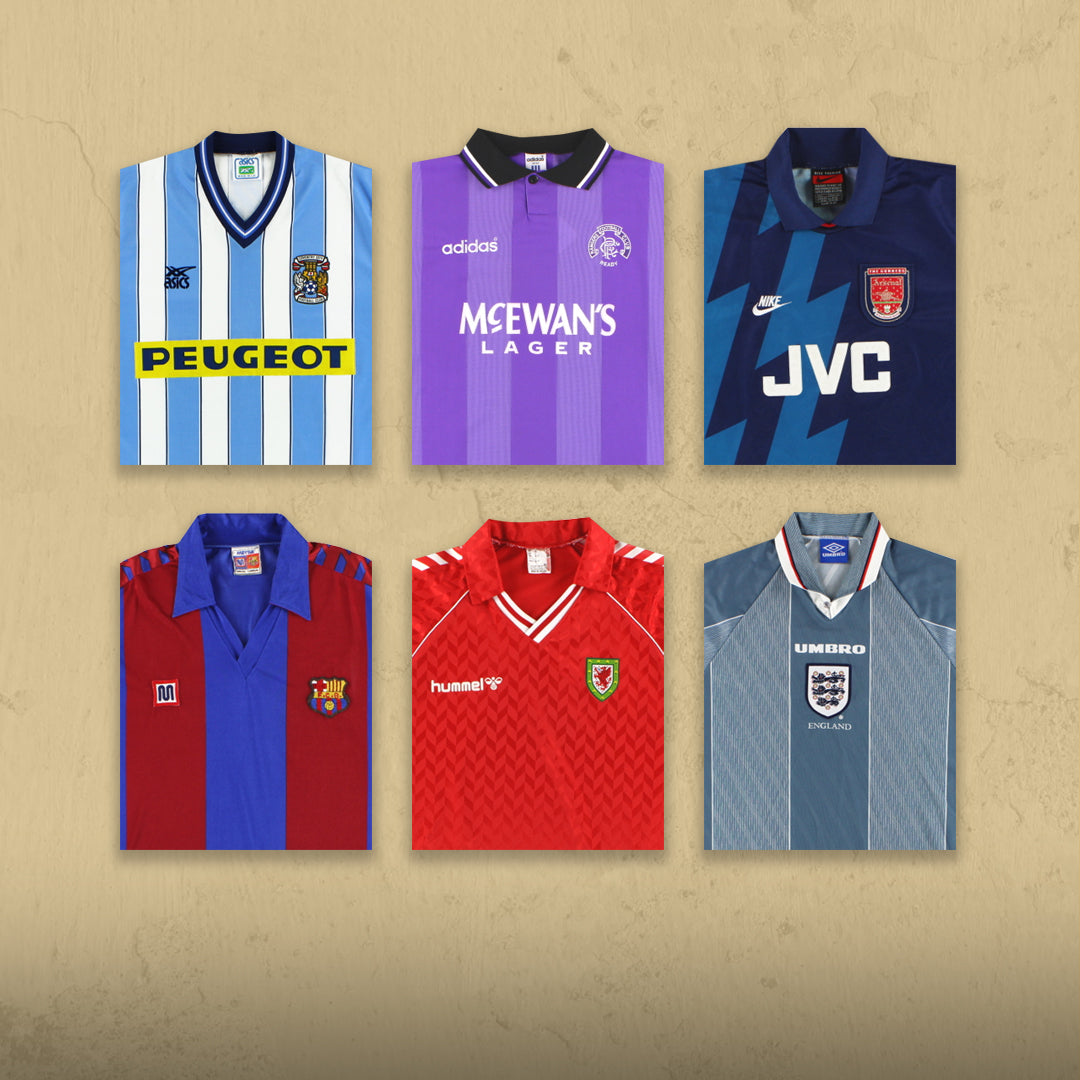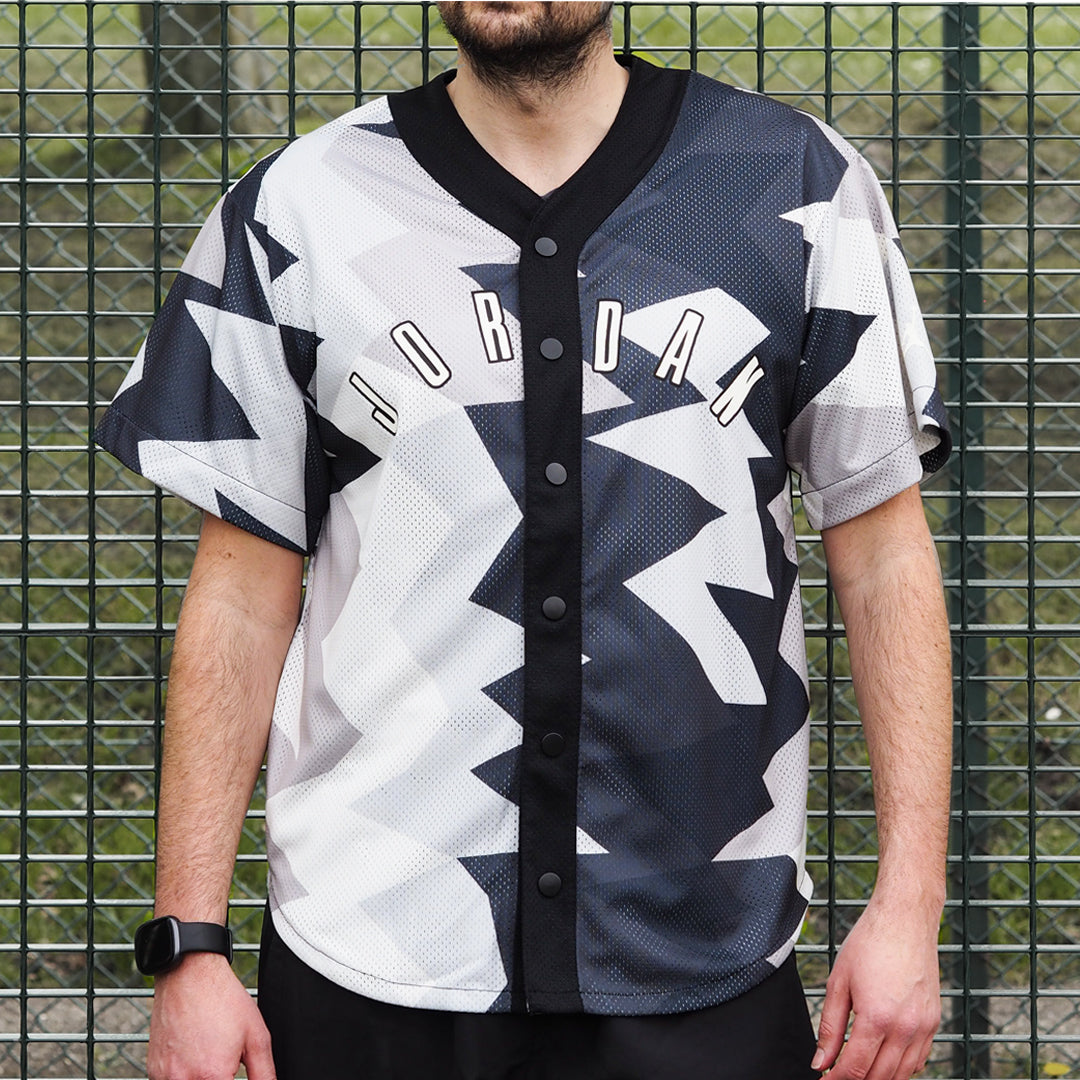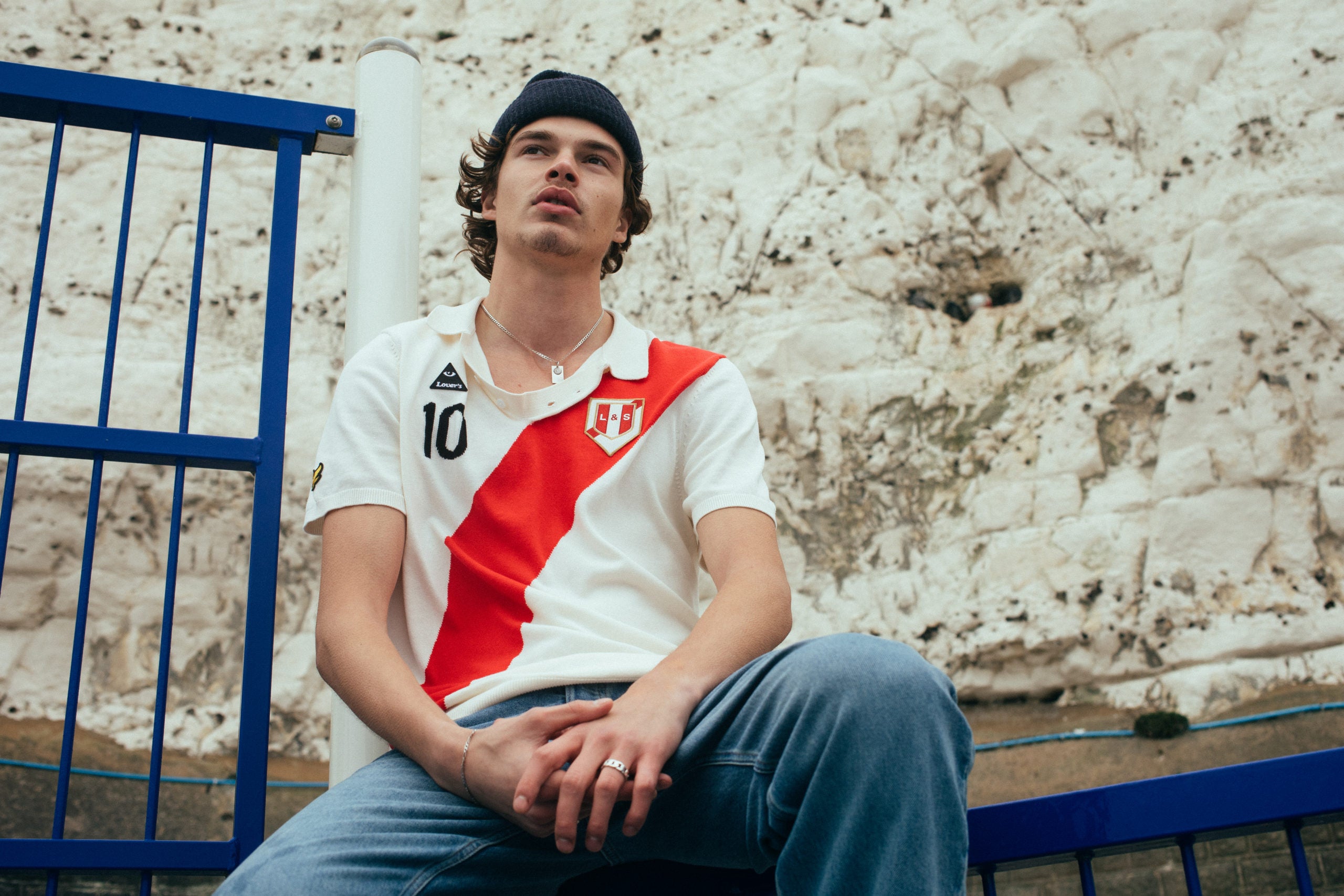Le Coq Sportif
Undoubtedly one of the stylish and classy sportswear brands from the 1980s, Le Coq Sportif were responsible for some truly innovative kit designs in that era, most notably the advent of ‘shadow stripes’ that gave a subtle shiny effect to jerseys.
The company were originally born in 1882 in the French town of Romilly-sur-Seine by Emile Camuset although it was not until 1948 that the iconic rooster logo (the name translates as ‘the athletic rooster’, the rooster of course being a national symbol of France) appeared on apparel.
As part of the early 1980s kit revolution in England Le Coq Sportif began supplying strips to Tottenham Hotspur, Chelsea, Everton, Sunderland and Aston Villa and totally re-wrote the rule book on what kit design could be, incorporating shadow stripes, pin stripes and unique neck/collar designs into their stylish and very continental-looking strips.
They also made in-roads into the international sphere with World Cup winning kits for Italy (1982) and Argentina (1986) as well as some excellent strips for Spain. Many years earlier in 1958 Le Coq Sportif had also produced the national strip for the French side.
Like their compatriots Patrick, the company’s profile dipped once the 1980s came to a close and only rarely has their logo been seen on British team kits since. Aberdeen, Hibernian, Sheffield United, Coventry City and Crystal Palace are among the sides who have worn Le Coq Sportif strips in the 1990s and beyond.
Away from football, Le Coq Sportif are most known for their cycling apparel and it is this that they originally made their name and reputation in the firm’s early years. In 1929 they produced their first jersey specifically for cyclists and in 1951 became the official supplier of jerseys for France’s prestigious Tour de France cycle race. In 2012 the rooster once again returned to the tournament with Le Coq Sportif sponsoring the event that year.
There is no doubt that France and Le Coq Sportif are intrinsically linked; the 1960s Olympics saw the French athletes wearing the brand and in the early 80s the country’s rugby side also sported Le Coq Sportif outfits. In the country’s domestic football league, the company’s 1970s green strips (complete with tricolor collar and cuffs) for St Etienne have entered football kit legend.

